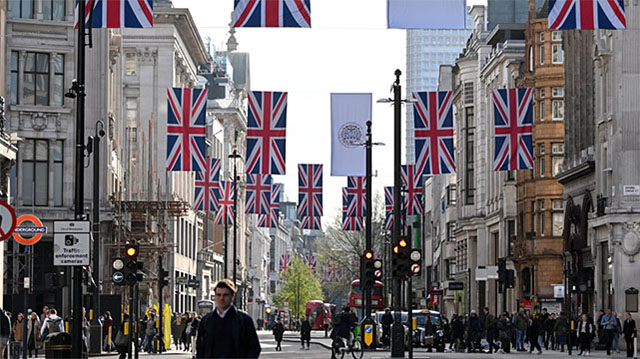Landlord and Tenant Act 1954, Part II — Appeal from county court’s decision refusing tenants’ application for new tenancy — Tenants ran a discotheque in a basement — Landlord in her notice under section 25 of the Act stated her opposition to the grant of a new tenancy on the grounds of persistent delay in payment of rent and substantial breaches of other obligations — She also purported to amend the second ground by adding a complaint of nuisance by noise — This was irregular having regard to the rule that the grounds of opposition, once stated in a landlord’s notice, cannot subsequently be amended — The judge found that there was overwhelming evidence of persistent delay in paying rent — She also considered that the complaint of nuisance was made out and she exercised her discretion by refusing the application for a new tenancy — On appeal it was submitted that she should have heard no evidence on the issue of nuisance as the amendment of the section 25 notice was invalid and that a new trial should be ordered — The Court of Appeal rejected this submission on the ground that, although the judge had no jurisdiction to deal with nuisance as such, the evidence was relevant to the exercise of her discretion — The other challenge to the decision disclosed a curious situation — It was sought to put in an affidavit from a witness at the county court declaring that his evidence there had been all lies and that he had been bribed by the landlord’s husband to give false evidence — The Court of Appeal allowed him to give oral evidence on oath and found him unworthy of belief — They preferred the evidence of the landlord’s husband — Held that there were no grounds for attacking the judge’s decision refusing a new tenancy — Appeal dismissed
This was an
appeal by tenants, Granville Hutchinson and Robert Barry Bedford, from a
decision of Miss Uziell Hamilton, a deputy recorder, sitting at Westminster
County Court, rejecting their application for a new tenancy of business
premises at 4 Meard Street, Soho. The respondent was Jeanette Lamberth.
Edward Cohen
(instructed by Beckman & Beckman) appeared on behalf of the appellants;
David Neuberger (instructed by David Lee & Co) represented the respondent.
Giving the
first judgment at the invitation of Ackner LJ, O’CONNOR LJ said: This is an
appeal from a decision of Deputy Recorder Miss Uziell Hamilton sitting at the
Westminster County Court, a decision given on August 20 1982 refusing the
appellants’ application for a new lease of business premises at 4 Meard Street in
Soho. The appellants were tenants holding over under the Landlord and Tenant
Act 1954 of basement premises at that address where they ran and run a
discotheque.
The answer
made by the landlord under section 25 of the Act, in opposition to the
application for a new lease, was on two grounds under section 30 of the Act,
namely, that the tenants ought not to be granted a new tenancy in view of their
persistent delay in paying rent which had become due and, secondly (and this is
out of para (c) of subsection (1)) the tenants ought not to be granted a new
tenancy in view of other substantial breaches by them of their obligations
under the current tenancy, namely, the use of the premises for purposes other
than purposes permitted under the terms of the current tenancy.
At a later
stage the landlord purported to amend the second ground of opposition by adding
a complaint that the appellants had been causing a nuisance during their
occupancy of the club by noise. Unfortunately, none of the legal
representatives present at the county court, nor the deputy recorder,
recollected that no amendment can be made to a section 25 notice in opposition,
and thus it was that both matters were dealt with at the hearing.
As far as the
first ground of complaint is concerned, there was absolutely no answer to it.
It is sufficient for me to repeat the facts, which are not in dispute. For the
first four years the appellants paid no rent whatever for the premises. That
was down to 1979; they only paid rent then because a writ was issued. Having
satisfied the dispute at that stage they paid no rent whatever until July 1981,
that is, 18 months further on. Once again there was some form of compromise and
again they paid no rent whatsoever for another nine months. Therefore there was
overwhelming evidence that they were tenants who had persistently delayed in
paying rent which had become due, and the learned trial judge, not
surprisingly, found that was so. She correctly summarised the evidence in her
judgment. She also heard evidence from a number of witnesses about the nuisance
appeal. The evidence there was given by a man called Mansbridge who had been a
resident in no 4 — some part of it — for 40 years, by a woman called Mrs
Elizabeth Mooney, by a man called David Mak, a Chinaman who ran a restaurant on
the ground floor of the premises, and by a Mr Joe Buttigieg, who was a builder
and decorator and who had a room on the first floor of the premises. In
addition, evidence was given by a Mr Hawkes who is employed by the Westminster
City Council as a senior environmental health officer, and he had investigated
a number of complaints about this club.
On that
evidence the learned judge came to the conclusion that the complaint of
nuisance was properly brought and made out. As far as Mr Buttigieg is
concerned, the only evidence that attracted the learned trial judge was, as she
said, that he also complained about noise, but he had left the premises in the
summer of 1981. That was the position apparently as at the trial in August
1982.
The learned judge
dealt with the matter in this way, and I quote from the penultimate paragraph
of her judgment:
I am quite
satisfied in this case, that there has been a persistent delay in the payment
of rent with no adequate explanation forthcoming from the applicant. Nor am I
satisfied from his own evidence that there would be any substantial improvement
in the future.
That is the
applicant in the proceedings.
In any event
it would not be reasonable to expect the landlord to be saddled with a tenant
who has persistently delayed paying his rent in the past and will very possibly
persistently delay in the future. There are arrears to date extending forwards
to September of this year. I am satisfied that there is a nuisance and
annoyance in this case to adjoining occupiers. It is mainly in relation to this
and the applicant’s record regarding the rent and his very unacceptable excuses
that in the exercise of my discretion I do not feel that a new tenancy should
be granted to the applicant. Accordingly the application will be dismissed.
The learned
trial judge had directed herself absolutely correctly because it was for the
landlord to make out one of the grounds of opposition; she considered two and
she considered that both were made out. Secondly, she had to exercise her
discretion as to whether she should refuse the application for a new tenancy
against the tenants, which she did.
There are two
grounds of appeal. First of all, let me deal with the straightforward one. A
complaint is made that she should have entertained no evidence on the issue of
nuisance, because, as I have already said, there is no power to amend the
section 25 notice. Therefore that issue as a ground of opposition was before
her quite wrongly: she had no jurisdiction to deal with it as such. There is no
dispute about that.
Mr Cohen, who
has said everything possible for the tenants, has submitted that the mere fact
that the learned judge thought that it was a further ground of opposition which
she could take into account may have influenced her in the exercise of her
discretion and that therefore at the very least we should order a new trial. In
my judgment that submission is not well founded, for this reason: if the case
had been before the court solely on the ground of persistent delay in paying
rent, it would have been open to the landlord to lead evidence of all
collateral matters affecting the occupancy of the premises by the tenants, and
they would have been permitted to give evidence in order to help the learned
judge exercise her discretion as to what had been going on. Therefore it cannot
be said that the evidence about nuisance was wrongly before her. In my judgment
there is no basis under that complaint for saying that there should be a new
trial. More important was the main ground of challenge. That was this. I have
already referred to Mr Joe Buttigieg who has given evidence. When this case
came before us an application was made for leave to admit fresh evidence,
namely, an affidavit by Mr Joe Buttigieg withdrawing the evidence which he had
given at the Westminster County Court, asserting that it was all lies and that
he had only given it because he had been bribed by the landlord’s husband to
come and give false evidence. That was a very serious allegation and the court
in its discretion came to the conclusion that the only fair thing to do was for
us to hear him. He was duly sworn and he gave evidence and was cross-examined.
In opposition the landlord called the landlord’s husband, Mr Bartolo, and Mr
Hawkes, the Westminster City Council environmental health officer, and we heard
the three witnesses give evidence.
As far as Mr
Buttigieg is concerned his account was that he was living in the premises or,
alternatively (it was difficult to understand because he is very deaf, but he
can speak English and he can certainly read it) his version of what had
occurred at some stage in 1981-82 was that he had been offered a bribe, namely,
that Mr Bartolo had come to him and said that if he would come and support his
claim for noise he would ‘give him a drink’, and in the fraternity in which Mr
Bartolo and Mr Buttigieg move giving a drink has got a particular meaning: it
is a well-known slang meaning for money. According to Mr Buttigieg, he then
went with Mr Bartolo together with two of the other witnesses, a Chinaman, Mr
Mak, and an Arab called A1 Fasateleh, to the solicitors where they all made
statements. But Mr Buttigieg says that his was quite untrue. Having made the
statement he then went to the county court and gave the evidence, but,
according to him, he did not get ‘a drink’. He told us that he was expecting a
thousand pounds and that is what he swore to in his affidavit as well.
He appears to
be saying that the reason why he has decided that he now wants to tell the
truth is because Mr Bartolo had thrown him out of his room at 4 Meard Street,
but there were various grounds for thinking that he was a witness who was quite
incredible and not to be believed. For example, at the foot of his affidavit
there is a passage by the commissioner to this effect: ‘The contents of this
affidavit having been read in my presence to the deponent he being illiterate,
who appeared perfectly to understand the same and made his signature in my
presence.’ Well, he is not illiterate:
he stood in the witness box in this court and, when asked to read passages,
proceeded to do so. There are other grounds for thinking from his demeanour
that his evidence was very antagonistic to Mr Bartolo, who is not the landlord,
though I can understand people in Meard Street believing him to be the person
who really wears the trousers when it comes to who lives there.
As far as Mr
Bartolo is concerned, he has got a criminal record for living off immoral
earnings. He has been to prison three times. He gave evidence and flatly denied
that he had offered any bribe to this man; indeed his evidence was that Mr
Buttigieg had complained to him about the noise coming from the club and he had
said: ‘Well, will you tell that to my solicitor?’ He had agreed to do so and the two of them
had gone there together — no Chinaman; no Arab.
In addition,
Mr Hawkes gave evidence that he knew Mr Buttigieg, and Mr Buttigieg had more
than once complained to him about noise coming from the club; that he had
complained to him in December 1982 and again in January; that he, Mr Hawkes,
had made a date to go there at midnight to Mr Buttigieg’s room in order to
listen to the noise, but on the first occasion — I think it was January 18 — Mr
Buttigieg was not at home at midnight. A further appointment was made for him
to attend, when he did go there. He said it was a reasonably quiet night that
night, but they could still hear noise coming from the club. Mr Hawkes had
heard the noise on a number of occasions, both from inside and outside in the
street and he has given evidence at the Westminster County Court. He said in
addition that Mr Buttigieg had given evidence before the Westminster Council
Licensing Committee who were dealing with the issue of a music dancing licence
for the appellants and he had given evidence to the same effect as the evidence
he had given in the county court.
Mr Hawkes took
a statement from Mr Buttigieg on December 8 1982. The first part of that was
copied directly from the statement which Mr Buttigieg had given to the
respondent’s solicitors at an earlier stage, but it was brought up to date by
Mr Hawkes. He told us that he had read the statement over to Mr Buttigieg and
asked him if it was true, and he said ‘Yes’ and then added the additional bit.
The additional part of the statement was dealing with when he moved back into
the flat. He said: ‘Since I have returned the noise from Gossips is still bad,
it is worse. Sometimes I cannot sleep because of the music and also the noise
when people leave Gossips.’ This was of
course a long time afterwards.
At some stage
in January, according to Mr Hawkes, Mr Buttigieg told him that he had given
this evidence because he had been paid to do so, and when there was an appeal
by the appellants against the refusal of the music licence to the magistrates’
court, when the hearing was part heard, Mr Buttigieg again gave evidence and
this time round he withdrew his previous evidence and said it was all lies —
just as he has told us — and that he had only given it because he had been
bribed by Mr Bartolo.
For our part,
having seen and heard the evidence and after discussion with my brother on this
issue — I speak for both myself and Ackner LJ — we were left in no doubt
whatsoever that Mr Buttigieg was not a credible witness. We entirely preferred
the evidence of Mr Bartolo, backed as it is by that of Mr Hawkes, and reject Mr
Buttigieg’s evidence. In the result there are no grounds whatever for attacking
the discretion of the learned judge and there are no other grounds suggested
that she had made any mistake in the finding that the appellants were tenants
who had persistently delayed in payment of the rent and were likely to do so.
There are no other grounds for attacking that part of the decision and I would
dismiss this appeal.
ACKNER LJ
agreed and did not add anything.
The appeal
was dismissed with costs.








